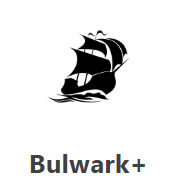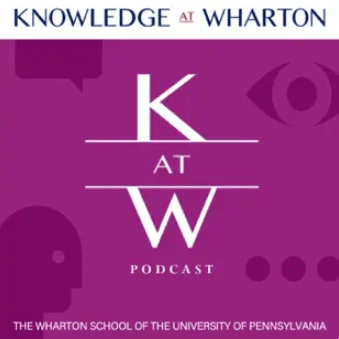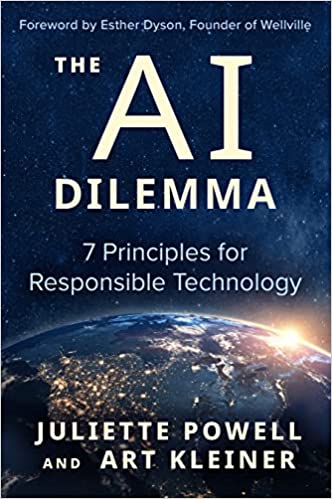Videos
Learn More About Art Kleiner
To strategically usher an organization through the age of artificial intelligence (AI), leaders must be prepared for the potential futures they may face – and the various problems that can arise. Strong, strategic leadership and robust scenario planning are critical to business success, says Art Kleiner, principal and editor-in-chief of content strategy firm Kleiner Powell International.
A management strategy expert with decades of experience as an executive, business consultant, leadership coach, writer and editor, Kleiner helps leaders ensure corporate trust, responsibly deploy AI, and predict future trends to maximize competitive advantage. His book with co-author Juliette Powell, “The AI Dilemma: 7 Principles for Responsible Technology” (Berrett-Koehler/Penguin, August 2023), offers an integrated perspective of engineering, business, government and social justice to help readers make sense of generative AI and other automated systems.
“It’s as if all of humanity is parenting a child together,” explains Kleiner, former editor-in-chief of strategy+business. “The kid was sleepy at first, but now it’s growing up really fast. We know it will do great things. We don’t know what kind of trouble it will get into, and we’re responsible. We can’t control it completely, but what we do now affects its future. AI is forcing us to become more aware – about technology, and especially about ourselves.”
Packed with a wealth of accessible examples, “The AI Dilemma” outlines a practical framework for understanding the potential benefits and pitfalls of emerging AI technology.
Plan Now For How Everything Will Change, Including How We Work
With the unprecedented pace of technology development, uncertain economic upheaval and supply chain disruptions, leaders must be prepared for many different future scenarios. The current and coming impacts of technologies can encompass everything from how businesses and governments operate to the future of work. Kleiner’s strategic management expertise, stemming from his unique experience as an executive, editor and educator, makes him a highly sought-after management thinker and scenario planning advisor.
“We know organizations will communicate differently through AI. Today’s jobs will become new kinds of roles, organized around specialized skills. We can plan for that,” explains Kleiner, author of the bestseller, “The Age of Heretics: A History of the Radical Thinkers Who Reinvented Corporate Management” (2008). “In every industry, every company and every government agency, there are some things we know for sure are coming down the road, so leaders have to look ahead at those dispassionately: the certainties, the unknowns, and the ways they might surprise us.’”
Turning the Illusion of Control Into Lasting Trust
One side effect of the rise of automated systems is what Kleiner calls “automation complacency:” the tendency of people to relax their guard when working with an automated system. In many cases, Kleiner says, this offers only an illusion of control while actually reducing the amount of agency you have in life. It’s vital for people to learn to tell the difference, and for institutions to build trust by helping them become more aware.
“Systems automate whatever their owners and engineers put into them,” Kleiner says. “That includes our attitudes, biases, and misunderstandings – but all at a much larger scale. When automated systems don’t do what we expect, we need cues and signals so people can know when to step in.”
The solutions to building greater trust in AI systems are outlined in the seven principles Kleiner and Powell accessibly describe in “The AI Dilemma.” Among the principles are calls for empowering everyone to control their personal data and for “opening the closed box” – enabling people affected by AI systems to understand the human and machine behavior underlying them.
According to Kleiner, we’re at the most consequential turning point in society since the Industrial Revolution. It’s essential for leaders to understand the power of AI – how it impacts employees and consumers alike – ensure moral and equitable systems, and prepare for multiple potential outcomes.
###
Art Kleiner is a writer, editor and entrepreneur whose work addresses today’s business and technological challenges. His most recent book, co-authored with Juliette Powell, is “The AI Dilemma: 7 Principles for Responsible Technology” (August 2023). He writes, speaks and consults on topics related to responsible AI and human behavior, organizational learning, the future of work, scenario planning, and the neuroscience of leadership. He is also one of the world’s leading consulting editors in business, a faculty member at New York University and editor-in-chief at the content strategy firm Kleiner Powell International (KPI).
Kleiner began his career at the Whole Earth Catalog and was editorial director of the best-selling “Fifth Discipline Fieldbook” series with Peter Senge et al. As editor-in-chief of the award-winning management magazine strategy+business, Kleiner published many influential thinkers and business leaders, and became a managing director at PwC.
His previous books include, “The Age of Heretics: A History of the Radical Thinkers Who Reinvented Corporate Management” (1996/2018), which describes the hidden history of business innovation. His book “Who Really Matters: The Core Group Theory of Power, Privilege and Success” (2003) was praised by Jim Collins and Marc Andreesen for its exposure of the underlying clan dynamics that drive company decision-making. His book “The Wise Advocate: The Inner Voice of Strategic Leadership” (2019), explains the neuroscience underlying long-term decision making.
Kleiner has a master’s degree in journalism from the University of California at Berkeley. He is a member of the Marshall Goldsmith 100 Coaches group.
Art Kleiner is available to advise your organization via virtual and in-person consulting meetings, interactive workshops and customized keynotes through the exclusive representation of Stern Speakers & Advisors, a division of Stern Strategy Group®.
Confronting the AI Dilemma
It’s clear that artificial intelligence (AI) systems are having deep impacts on business, government and society. They’ll only become more ingrained in every aspect of our lives from here. According to Art Kleiner, principal and editor-in-chief of Kleiner Powell International, it’s vital for leaders to understand both the potential benefits and pitfalls of AI technology. In this engaging presentation, he draws from his essential guidebook, “The AI Dilemma: 7 Principles for Responsible Technology,” to integrate the perspectives of engineering, business, government and social justice to help make sense of programmed intelligent systems. By sharing a practical seven-point outline for responsible deployment of AI, Kleiner provides audiences with an accessible framework that can be implemented immediately.
Strategic Leadership via Robust Scenario Planning
With the unprecedented pace of technology development, uncertain economic upheaval and supply chain disruptions today, effective, strategic leaders must be prepared for many different future scenarios. In this eye-opening presentation, Art Kleiner, principal and editor-in-chief of Kleiner Powell International and author of “The Age of Heretics: A History of the Radical Thinkers Who Reinvented Corporate Management,” explains how the current and future impacts of technologies like AI encompass everything from how businesses and governments operate to the future of work. Audiences will gain expert guidance from one of the most sought-after management thinkers and scenario planning advisors in the world as Kleiner illustrates how organizations across all sectors can prepare for a number of potential possibilities as well as the surprises that can come along with them.
Turning the Illusion of Control Into Lasting Trust
As the use of automated systems continues to spread, many fall into “automation complacency.” In this revealing presentation, Art Kleiner, principal and editor-in-chief of Kleiner Powell International and former strategy+business editor-in-chief, explains how automation complacency leads to consumers having an illusion of control over automated systems that doesn’t in fact exist. When an automated system doesn’t do what a user expects, trust is damaged. Drawing from his co-authored book, “The AI Dilemma: 7 Principles for Responsible Technology,” Kleiner outlines the steps organizations should take now to build trust rather than erode it. Audiences will gain a new understanding of the importance of trust as well as practical steps to take to shore up trust both inside and outside of an organization.
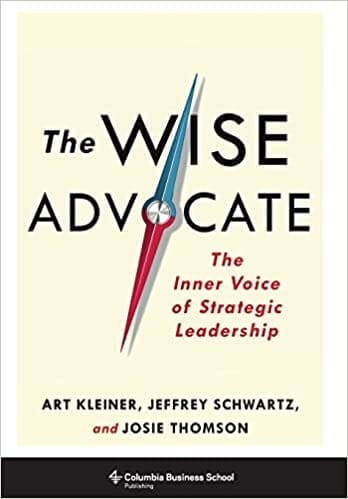
The Wise Advocate: The Inner Voice of Strategic Leadership
(Columbia Business School Publishing, January 2019)
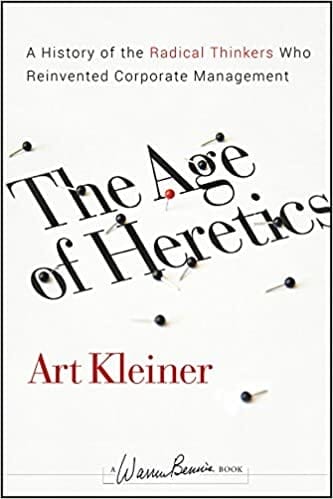
The Age of Heretics: A History of the Radical Thinkers Who Reinvented Corporate Management
(Jossey-Bass, July 2008)
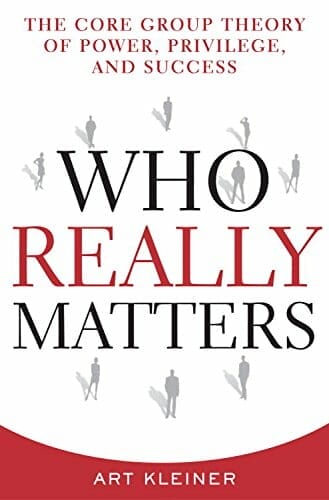
Who Really Matters: The Core Group Theory of Power, Privilege, and Success
(Currency/Doubleday, November 2003)
Art Kleiner, principal and editor-in-chief of Kleiner Powell International, former PwC Managing Director and former editor-in-chief of strategy+business is one of the most highly sought experts on management thinking, scenario planning and the future of work. Author of the bestselling book, “The Age of Heretics,” and co-author of “The AI Dilemma,” Kleiner helps business leaders, policymakers and non-profits understand the vast impacts of emerging technology, how to plan for them, how to build trust and more. He is available to discuss any or all of the following topics in programs that can be customized to meet the needs and goals of your organization with the added option of meeting virtually or in person.
- Confronting the AI Dilemma
- Strategic Leadership via Robust Scenario Planning
- Turning the Illusion of Control Into Lasting Trust
"As a brilliant sculptor can see the statue within the block of marble, so it is with Art and ideas. His expertise and guidance has made me a better thinker and writer.”
“Art Kleiner has a unique capacity to bring ideas from various disciplines together. He also has a gift for helping people see both the big picture and the important details, and a warm demeanor that motivates them to refine their ideas. His voice is respected by many different audiences.”
“One thing I’ve done throughout my career is to seek out people who inspire my thinking. People who challenge conventional wisdom. Stand for something. Say something distinctive. With that in mind I’d like to recognize Art Kleiner. I loved working with Art for many reasons - his ability to reframe an idea into something better, to synthesize complex ideas into a compelling narrative, and dare people to think deeper. A superb author, editor, and management thinker.”
"The workshop with [Art] Kleiner is giving me permission to think and talk about strategic leadership.... If we are to be good stewards of the resources we control, and the power that’s been delegated to us, we ought not squander our energies on that which doesn’t work."
"Art Kleiner has a superb facilitation style; a remarkable ability to hold the space. I appreciated how he honored peoples’ requests, giving them thought and consideration, yet keeping us moving as a group through the information we all wanted to hear, know, and understand."
Praise for "The AI Dilemma"
“Powell and Kleiner find us on the razor’s edge: we cannot go back to a world before AI (nor, they reassure, would we want to). But the path forward, unchecked, is equally unpalatable. Their question is simple: “How can we create a world in which we gain value from this technology without losing our humanity?” Their answers — captured in seven principles — are complex and profound. You will not find wiser, more careful, more caring guides to this brave new world than the two authors of The AI Dilemma.”
“This book could not have come at a more appropriate time. AI is going to dominate our lives even more than it does today. Like cars, the internet, and smartphones, AI will change our lives and improve them but will also require careful management by society to mitigate the possible damage it might cause. Powell and Kleiner have created a thought-provoking work and a must-read for all living in this disruptive moment.”
“The impact of AI will be massive — and it’s essential that we take steps now to ensure the impact is positive. This thought-provoking book shows what it will take to restore trust in our institutions and in our digital infrastructures so that our most advanced technologies operate on behalf of all people.”
“With the benefit of Powell and Kleiner’s clear-eyed explanations of what we’re actually dealing with when it comes to AI, we may yet avoid the mistakes we made with the internet and pretty much every technology before it. As they demonstrate, this time it matters even more that we do.”
“Our future as humans depends on coexisting with intelligent machines, some that might seem to have supernatural powers. Juliette Powell and Art Kleiner with this book help you understand this coming future and the perils of conventional thinking. I am learning so much, and it is challenging some of my preconceived notions.”
Praise for "The Wise Advocate"
"The Wise Advocate is a key book for aspiring leaders aiming to make the best―and hardest―choices. The authors provide a practical guide to decision making through a combination of neuroscience concepts, a process of self-reflection, and consideration of the greatest good for the people one must lead."
"You have choices. As a leader making decisions that impact your business, and as a person making decisions that impact your life, you don’t have to be a prisoner of the default and (nearly) automatic ways in which your brain attends to information. You don’t have to take the road everyone else travels. You can learn to guide your own attention and thinking, to make decisions that stand the test of time. Your first choice, fortunately, is an easy one ― read The Wise Advocate"
"When an organization commits to meaningful change, its leaders face very challenging choices every day. The Wise Advocate is about what happens in those moments and how the best leaders help move their cultures forward. The book is clearly understandable for people at multiple levels across a diversity of cultural situations."
"This book is timely. By emphasizing the topics of wisdom, the high vs. low roads, and ethics, the authors make a unique contribution. While some of today’s university-based leadership and management researchers tend to ignore ethics, organizational context, and practical business considerations, the authors' approach is sensitive to those applied concerns."
"With its theoretical soundness and its exceptional case materials, this is a valuable resources for those studying business. . . . Recommended."










